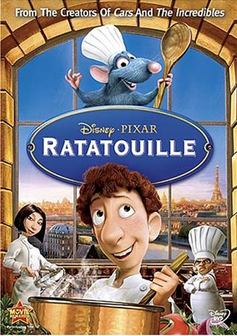Rats! I Can't Stop Eating Chips

Researchers at the FAU Erlingen-Nuremberg, Germany, concluded a 2013 study into a condition on called Hedonic Hyperphagia before their presentation at the National Meeting & Exposition of the American Chemical Society.
Lovers of the World’s favourite snack food may not be familiar with the phrase, but they may well be aware of the condition – eating for pleasure, or recreational over-eating, which is of course independent from hunger or the need for food.
It is claimed that two of every three people in the United States is overweight, so with obesity numbers increasing, it’s a serious business.
If it was all about eating Potato Chips they could have just asked us, but it was some lucky lab rats that got to dine on the snack food of the Gods for experimental purposes.
However, for every lucky rat, there is an unlucky one, or two, in this case – and for comparison purposes, one group of rat chums got to dine on boring old rat food and the other, rat food mixed with fat and carbohydrates.
The researchers used magnetic resonance imaging machinery to look into the rodents’ brains to check on the differences.
The rats obviously preferred the Potato Chips – who wouldn’t? However, it wasn’t just the high energy content of the Chips that caused an increase in activity.
The machinery recorded an increase in activity in the reward and addiction areas of the brain. The quantity of food eaten, sleep and motion areas were also stimulated further in the Chips eating rats. The high fat and carbs group recorded the second highest enhancement in activity in the same areas.
As certain foods, including Chips, stimulate the reward centre of the brain in people to varying degrees, depending on how much they enjoy certain foods, the inference is clear: If you are one of the odd half a dozen people in the world that do not like Potato Chips, you are less likely to be susceptible to the reward signals in the addiction areas of the brain. We won’t venture into the realms of will-power – those with sufficient will-power to deny themselves the pleasure of Chips and Crisps, are different folk to us.
If however, you can munch away at Chips and Crisps to your heart’s content, you are quite likely to enjoy similar stimulated activity in the appropriate areas of the brain to the rats.
Science may sound complicated at times, but the theories are often fairly straight-forward. This study was no different.
However, for every clever scientific development or discovery, these pesky researchers just have to take it a step too far...
...If they can learn what the molecular triggers in snacks that stimulate the reward area of the brain are, they want to develop drugs to block the attraction.
Hopefully they will all win the German Lottery and buy pacific islands to retire to before they achieve this, heinous crime against Chips and Crisps.
Lovers of the World’s favourite snack food may not be familiar with the phrase, but they may well be aware of the condition – eating for pleasure, or recreational over-eating, which is of course independent from hunger or the need for food.
It is claimed that two of every three people in the United States is overweight, so with obesity numbers increasing, it’s a serious business.
If it was all about eating Potato Chips they could have just asked us, but it was some lucky lab rats that got to dine on the snack food of the Gods for experimental purposes.
However, for every lucky rat, there is an unlucky one, or two, in this case – and for comparison purposes, one group of rat chums got to dine on boring old rat food and the other, rat food mixed with fat and carbohydrates.
The researchers used magnetic resonance imaging machinery to look into the rodents’ brains to check on the differences.
The rats obviously preferred the Potato Chips – who wouldn’t? However, it wasn’t just the high energy content of the Chips that caused an increase in activity.
The machinery recorded an increase in activity in the reward and addiction areas of the brain. The quantity of food eaten, sleep and motion areas were also stimulated further in the Chips eating rats. The high fat and carbs group recorded the second highest enhancement in activity in the same areas.
As certain foods, including Chips, stimulate the reward centre of the brain in people to varying degrees, depending on how much they enjoy certain foods, the inference is clear: If you are one of the odd half a dozen people in the world that do not like Potato Chips, you are less likely to be susceptible to the reward signals in the addiction areas of the brain. We won’t venture into the realms of will-power – those with sufficient will-power to deny themselves the pleasure of Chips and Crisps, are different folk to us.
If however, you can munch away at Chips and Crisps to your heart’s content, you are quite likely to enjoy similar stimulated activity in the appropriate areas of the brain to the rats.
Science may sound complicated at times, but the theories are often fairly straight-forward. This study was no different.
However, for every clever scientific development or discovery, these pesky researchers just have to take it a step too far...
...If they can learn what the molecular triggers in snacks that stimulate the reward area of the brain are, they want to develop drugs to block the attraction.
Hopefully they will all win the German Lottery and buy pacific islands to retire to before they achieve this, heinous crime against Chips and Crisps.

